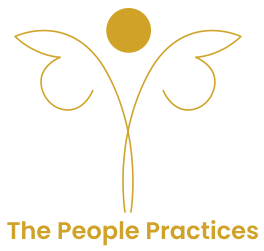Introduction: Why Meaningful Contribution Matters in the Modern Workplace
In today’s fast-paced professional world, success is no longer solely measured by how many tasks you complete. The true value of your work lies in the impact you create and the purpose behind your efforts. Individuals who contribute meaningfully experience greater job satisfaction, career growth, and a deeper sense of fulfillment. Whether you’re starting or established in your role, learning to align your actions with larger organizational goals can help you make a more purposeful difference.
The Changing Definition of Success: From Task Completion to Meaningful Impact
Gone are the days when simply ticking boxes on a to-do list defined success. The modern workplace values individuals who meet deadlines and contribute to the company’s larger mission. Delivering meaningful results requires exceeding what’s expected, ensuring your work has lasting significance.
How Contributing Purposefully Boosts Job Satisfaction and Career Growth
When you understand how your contributions fit into the broader picture, your role becomes more than just a job—it becomes a calling. Purpose-driven work increases engagement, fosters a sense of ownership, and directly impacts your career trajectory by positioning you as someone who adds real value.
Understanding Your Role in the Larger Picture: Aligning Personal Goals with Organizational Objectives
Awareness of your role’s place within the larger organizational ecosystem is crucial. It’s about identifying where your ambitions intersect with the company’s goals. This alignment ensures that your contributions not only serve your own professional growth but also propel the organization toward its mission.
Understanding What Meaningful Contribution Truly Means
Moving Beyond the Daily Grind: Focusing on Purpose-Driven Work
Work should not just be about getting through the day. Purpose-driven work involves thinking about the “why” behind each task. It’s about elevating your actions to a higher level of significance, ensuring that what you do has value not just for today, but for the future.
The Ripple Effect: How Individual Actions Create Broader Organizational Change
Every individual action sends ripples through the organization. Even small contributions can have far-reaching effects when aligned with broader goals. By understanding this interconnectedness, you can see how your daily decisions influence the organization’s trajectory.
Meaningful vs. Busy Work: How to Distinguish Between the Two
It’s easy to get trapped in the cycle of “busy work”—tasks that keep you occupied but don’t move the needle. Meaningful work, on the other hand, drives results, fosters innovation, and contributes to long-term objectives. Learning to distinguish between the two can help you focus on what truly matters.
Assessing Your Current Impact: Where Do You Stand?
Conducting a Self-Assessment: Are You Making a Difference?
Start by reflecting on your current contributions. Are your actions creating the desired impact? Consider your recent accomplishments and how they align with the organization’s goals. A self-assessment allows you to gauge your effectiveness and identify areas for growth.
Seeking Feedback from Peers and Managers: Gaining Outside Perspective on Your Contribution
Feedback is a powerful tool for growth. Regularly seek input from your colleagues and supervisors to understand how others perceive your contribution. Often, an external perspective provides insights that you may not have considered.
Identifying Areas of Strength and Opportunities for Improvement
After gathering feedback, assess both your strengths and areas where you can improve. Focus on leveraging your natural talents while identifying opportunities to expand your skill set. This balanced approach ensures continuous growth and greater impact.
Setting Purposeful Goals That Align with Your Role
Defining Purposeful Goals: What Makes a Goal Meaningful?
A meaningful goal serves both personal growth and the organization’s mission. It’s not just about what you want to achieve, but how your goal will benefit those around you and the larger business objectives.
How to Ensure Your Goals Reflect Both Personal Ambitions and Company Objectives
For a goal to truly resonate, it must align with both your aspirations and your company’s needs. This dual focus allows you to stay motivated while contributing to the bigger picture.
SMART Goals vs. Purpose-Driven Goals: Finding the Balance Between Clarity and Significance
While SMART goals (Specific, Measurable, Achievable, Relevant, Time-bound) provide clarity and structure, purpose-driven goals add meaning to the mix. The challenge is finding a balance between the two—combining the precision of SMART goals with a focus on making a lasting impact.
Leveraging Your Strengths for Greater Contribution
Identifying Your Core Strengths: What Are You Naturally Good At?
Everyone has unique talents. Take time to identify what comes naturally to you. Whether it’s problem-solving, leadership, or creativity, your core strengths are the key to driving meaningful contributions.
Focusing on Strengths Rather Than Weaknesses to Maximize Impact
While it’s essential to address weaknesses, focusing on your strengths allows you to make the biggest impact. By leaning into your natural abilities, you can contribute more effectively and confidently in your role.
How to Apply Your Strengths in Everyday Tasks for More Meaningful Outcomes
Once you’ve identified your strengths, consider how you can apply them to your day-to-day responsibilities. Whether you’re leading a project or brainstorming new solutions, playing to your strengths will help you achieve more meaningful outcomes.
Taking Initiative: The Power of Proactivity in Driving Results
Why Waiting for Direction Limits Your Potential for Impact
Taking initiative is about recognizing opportunities and acting on them without waiting for direction. When you consistently wait for instructions, you limit your potential to create change and influence outcomes.
Ways to Identify Opportunities Where You Can Step Up and Lead
Look for areas where you can contribute beyond your regular duties. Whether it’s proposing new ideas, streamlining processes, or volunteering for challenging projects, stepping up can position you as a proactive leader.
How Proactivity Can Position You as a Key Contributor in Your Team
Proactivity doesn’t just increase your value—it also helps position you as a key contributor who consistently drives results. Being known for taking initiative can enhance your professional reputation and open doors to leadership opportunities.
Effective Communication: The Foundation for Meaningful Collaboration
Why Clear and Open Communication is Key to Driving Results
Clear, transparent communication lays the groundwork for effective collaboration. When everyone is on the same page, teams can work together seamlessly to achieve shared goals.
Listening Actively: How to Understand Others’ Perspectives for Better Collaboration
Active listening involves more than just hearing words. It requires understanding the intent behind the message and considering others’ perspectives. This fosters mutual respect and strengthens team dynamics.
Building Trust Through Transparency and Consistent Dialogue
Open communication builds trust—a critical element in any team. By consistently sharing information, providing updates, and seeking input, you create a culture of trust and accountability that drives meaningful collaboration.
Building Strong Relationships for Greater Team Impact
How Strong Interpersonal Connections Enhance Collective Results
Strong relationships lead to stronger teams. When team members trust and support each other, they collaborate more effectively, leading to enhanced collective results.
Navigating Workplace Dynamics: Building Bridges Across Teams
Workplace dynamics can be complex, especially in large organizations. Learning to navigate these dynamics by building bridges across teams can enhance collaboration and create a more cohesive working environment.
The Role of Empathy and Understanding in Meaningful Collaboration
Empathy fosters understanding and cooperation. By putting yourself in others’ shoes, you can better understand their needs and concerns, which leads to more effective collaboration and stronger outcomes.
Becoming a Solution-Oriented Thinker: Adding Value Through Problem-Solving
Shifting from Problem-Identification to Solution-Oriented Thinking
Identifying problems is only half the battle. To truly contribute, you need to focus on finding solutions. Solution-oriented thinking encourages innovation and helps drive positive change.
How Creative Problem-Solving Increases Your Value in the Workplace
Creative problem-solving is a highly valuable skill. When you can think outside the box and come up with innovative solutions, you position yourself as an indispensable asset to your team.
Simple Frameworks to Tackle Complex Challenges with Confidence
Utilizing frameworks like the “5 Whys” or the “Problem-Solving Loop” can help simplify complex challenges. These techniques guide you through the process of breaking down problems and identifying practical, actionable solutions.
Embracing Continuous Learning to Stay Ahead
Why Learning and Development Are Essential to Driving Long-Term Results
In a constantly evolving workplace, continuous learning is key to staying relevant and driving long-term results. By committing to lifelong learning, you can adapt to new challenges and continue making impactful contributions.
How to Stay Up-to-Date with Industry Trends and Role-Specific Skills
Staying current with industry trends and role-specific skills ensures you remain competitive. Whether through formal training, workshops, or self-directed learning, expanding your knowledge keeps you ahead of the curve.
Leveraging Both Formal Training and Self-Directed Learning for Maximum Growth
While formal training is valuable, self-directed learning allows for personalized growth. Combining structured education with self-initiated learning maximizes your development and equips you to contribute more meaningfully in your role.
Mastering Time Management for Focused Impact
How Effective Time Management Boosts Productivity and Significance in Your Work
Time management isn’t just about being efficient—it’s about being purposeful. When you manage your time effectively, you can focus on high-impact tasks that drive meaningful results.
Prioritizing High-Impact Tasks Over Low-Value Distractions
It’s easy to get sidetracked by tasks that don’t contribute significantly to your goals. By prioritizing high-impact tasks, you ensure that your efforts are always directed toward what truly matters.
Time-Blocking and Other Techniques to Ensure Focused, Purposeful Work
Time-blocking is a simple but effective technique for ensuring focused work. By scheduling specific blocks of time for important tasks, you can minimize distractions and maximize your production
Staying Flexible: Adapting to Change to Maintain Your Impact
Why Flexibility Is Crucial in an Ever-Changing Workplace
The modern workplace is constantly evolving, and flexibility is key to maintaining your impact. Being adaptable ensures that you can navigate changes without losing focus on your goals.
How to Stay Open to New Approaches and Shifts in Strategy
Staying open to new approaches and shifts in strategy allows you to remain agile. Embracing change as an opportunity rather than a challenge positions you as a forward-thinking contributor.
Ways to Ensure Continued Contribution Even in Times of Uncertainty
In times of uncertainty, your ability to adapt and contribute meaningfully becomes even more critical. By remaining focused on your core strengths and staying proactive, you can continue driving results regardless of external challenges.
Conclusion: Leaving a Lasting Legacy Through Meaningful Work
How to Ensure Your Contribution Has a Lasting, Positive Impact on Your Organization
Creating a lasting impact requires focus, dedication, and a commitment to meaningful work. By continuously striving to contribute purposefully, you not only elevate your role but also leave a positive, lasting legacy within your organization.
The Personal and Professional Benefits of Making a Meaningful Contribution
The benefits of making a meaningful contribution extend beyond the workplace. Purpose-driven work enhances your sense of fulfillment, boosts your professional reputation, and contributes to your long-term career success.vity.



